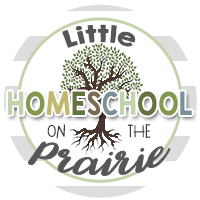24 January 2017
Blogging through the Alphabet – Letter B
January 24, 2017
We are at the second letter in the alphabet. I must confess
that for this letter my first thought was….
B is for Bee.
I can’t help it as bees occupying a lot of my life being a beekeeper
with my insect obsessed daughter. We started keeping bees in 2014 and
currently, we now have three beehives.
Thanks to my daughter I actually like bees now. They are
just amazing creatures. In 2011 our journey began and let me tell you I was
scared to death of bees. I was only aware of honey bees, bumble bees, and
carpenter bees. They brought on a lot of fear as I was stung by a nest of wasp
as a child and always assumed it was the honey bee. Then I learned about honey bees
thanks to my Autistic daughter. I found out that it was the dreaded wasp that brings back those painful memories of being stung around 100 times.
Now for some amazing Bee facts:
*There are around 25,000 known species of bees in every part
of the world except for Antarctica. In the United States around 4,000 species.
They are still discovering more bees worldwide. Who would have known that there are so many
bee species?
*Honey Bee is also known as Apis Mellifera and is not native
to North America. They are actually from Europe and brought over to America by
the early settlers in early 1600s. Yikes, two months on the high seas with bees
was said, “To be potentially hazardous” as stated in a letter written by the
Virginia Company.
*The Honey Bee is the only insect that we humans raise for
food and medicine.
*There are 7 verses about Bees in the Bible and 26 verses
about honey.
*They pollinate 70 out of 100 crops which is 90% of the
world’s food.
*A single Honey Bee only makes around 1/12th of a
teaspoon in its entire lifetime. For one pound of honey she will need to visit
around 2,000,000 flowers.
*In one hexagon cell of capped honeycomb it can contain the
nectar of 1,000 flowers if it’s not in an exclusive crop area meant for
pollination.
*A beehive is kept at a temperature of 95-96 degrees
Fahrenheit year around regardless of the outside temperature.
*They beat their wings 200 beats per second.
*At the peak of summer after the spring build up there can
be 60,000-80,000 bees in a colony.
My daughter is involved in 4-H Entomology and she made an
educational box on honey bees and has given many presentation on honey bees with
some of this information.
Products from the hive that bees make:
HoneyHoney is the honey bees year around food. There are many colors and flavors of honey. Honey is hydroscopic and has antibacterial qualities.
Pollen
The Honeybee uses pollen as a food. Pollen is one of the richest and purest natural foods, consisting of up to 35% protein, carbohydrates, enzymes, 10% sugars, minerals, and vitamins A , B1 , B2, B3, B5, C, H, and R (rutine).
Beeswax
Beeswax is secreted from the bee’s glands to make beeswax for the honey comb. We use it for drugs, candles cosmetics, artists’ materials, furniture polish.
Propolis
The honeybees collect this from trees; it is a sticky resin that is mixed with wax to make a sticky glue. Bees use this to seal cracks and repair their hive. We use it as a health aid, and is used in fine wood varnishes.
Royal Jelly
The milky substance that makes an ordinary bee a Queen Bee. Royal Jelly is made of digested pollen and honey or nectar mixed with a chemical secreted from a gland in a nursing bee’s head. It is not cheap in price. It is used as a dietary supplement,fertility stimulant, and a few other uses. It contains all of the B vitamins.Bee Venom
I couldn’t imagine getting stung for medical purposes. The bees die once they sting. If you have ever experience being stung than you know that a bee sting causes swelling and itching. Some people are highly allergic to bee venom. It’s not unheard of to hear that a beekeeper who has been one for a long time to suddenly become allergic to bees after years of being stung repeatedly. “Bee venom therapy” is practiced overseas and some in the USA. It is believed to help arthritis, neuralgia, high blood pressure, high cholesterol and even MS.What do you think of this amazing insect? Bees are pretty amazing insects.
Other bloggers have joined in Blogging through the Alphabet. Annette and Amanda are hosting this on their blogs. Stop by and see what they are blogging about with the letter B. #abcblogging
For my other Blogging through the Alphabet post:
Subscribe to:
Post Comments
(Atom)


Search This Blog
Grab my button!

Followers
Powered by Blogger.
Homeschool Planet
HSP Free Offer Email for REVIEWERS
Popular Posts
-
We are learning about the Viking in our history studies. What better way the enhance the learning by adding a craft to the mix. With my kid...
-
After several weeks of hard work on our Native American Teepee Village Diorama we are finally done. This was a fun project. Everyone is rea...
-
About the Book Boo k: Scent of Sabotage Author: Dana Mentink Genre: Inspirational Romantic Suspense Release Date: December 30, 2025 De...
-
When I was in Israel, one of the most surreal moments was going to the Temple Mount. It’s something I will never forget. We nearly didn’t ge...
-
Disclosure: I received this complimentary product through the Homeschool Review Crew Math seems to be one of the biggest worries among homes...
Labels
20p12.1
4-H
About Me
American History
Ancient History
Autism
Beekeeping
Beekeeping 101
Bible
Blog Hop
Blogging
book
Book reviews
Camera Shots
Classroom
Coding
Curriculum
Disclosure Policy
Egypt
Entomology
Experiments
Family
Feast of Tabernacles
Field Trips
Free Printables
Garden
Geography
Giveaway
Giveaways
Hanukkah
Health
Hebrew
High School
History
homemade
Homemade Bread
Homemaking
homeschool
Homeschool crafts
Homeschooling
Honey Products for Sale
Honey Recipes
Horse Therapy
iPad & Apps
Israel
Just For Fun
Juvenile Arthritis
Kids
Lapbooks
Life Cycle
Life in general
Math
Medieval History
My kid said...
Organizing
Organizing/homeschooling
Our curriculum
Our Week Through the Lenses of a Camera
Passover
Photography
Prayer
Purim
Random Pictures from my Kids
Recipes
Review
Review Policy
Reviews
Rosh Hashanah
Science
Scripture
Sensory Processing Disorder
Shabbat
Shavout
Simchat Torah
Sonlight
Special Needs
Special Needs High School
Special Needs Product Reviews
STEAM
STEM
Stuff
Tish B’Av
tos
TOS Crew Reviews
Tu Bishvat
Viking History
Week in Review
Wordless Wednesday
Workboxes
Yom Ha'atzmaut
Yom Hashoah
Yom Hazikaron
Yom Kippur
























I like bees...though I am cautious around them. I never knew that bee keepers could develop an allergy to them. Thanks for joining in. :)
ReplyDeleteThanks for the interesting facts. I didn't know most of these. How much honey do you get from your bees? How do you collect it?
ReplyDeleteUsually 40 to 60 pounds per hive. I have heard of beekeepers getting up to 120 pounds per hive. We've never managed that much. Usually, we harvest spring, summer, and in the fall.
DeleteGetting the honey is always the best part! It's getting the girls out of the honey super and getting it to where you need to extract it. Another post!
We love raw honey, but I have zero interest in raising them myself. I figure I'll do my part be constantly having flowers for them to get pollen from.
ReplyDeleteBees are fascinating. Thanks for the interesting facts. - Lori
ReplyDeleteHow fun! I love all these facts.
ReplyDeleteI was allergic to bee stings as a child and was always afraid of bees until well in to my adult years. Now I know if you leave them alone, they leave you alone. You are blessed to have raw honey at your disposal. Thank you for sharing!
ReplyDeleteGreat post! I love learning about bees!
ReplyDeleteWhat a great bit of information! I will need to share this with my son who is scared to death of summer and the bees. This might help him overcome his fears! Thank you for Blogging Through the Alphabet with us!
ReplyDeleteI think I would like Bees!
ReplyDeleteRenee--I learned so much from your post! We have really been aware of bees because of their plight nationwide (or is it worldwide?). We try to keep a bee-friendly garden and have had Russian sage in our backyard for years (they LOVE that stuff). But there's so much I didn't know. Thank you! :)
ReplyDeleteThanks for all the new information on bees. We have a couple of friends who keep bees, and I find that fascinating. I am far too afraid of bees and being stung to do it.
ReplyDelete